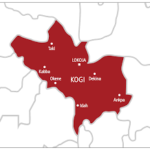
Tunji Owoeye, the Managing Director of Elephant Group, was the President of Rice Importers Association of Nigeria (RIAN). He is an investor in the rice value chain. In this interview, he speaks on local rice, ban on importation of rice, the staple food, and how Nigeria can be self-sufficient in its production in the next two years.
Do you think local rice millers can meet the demands of Nigerians?
I think we will appreciate it better if we understand where we are coming from. We are coming from a place where four to five years ago rice production was only between one to two million tonnes a year. It’s roughly eight to 10 million tonnes today. This is harvest time for rice paddy. If we go across the North, everybody is active.
We have seen in recent times that rice farmers have been able to send their children back to school and they have been able to meet their basic needs. There is significant improvement in the availability of paddy and that is why there are more rice milling capacities in the country now.
We have gone very far. If the government says very soon we are going to be self-sufficient in rice, as an investor, I will say emphatically that we will. A lot of work has been done in that regards. For instance, see the efforts of the CBN on the Anchor Borrowers programme. There is a new product that rice farmers association is having with the CBN. The CBN is supporting them with inputs and matching them with input suppliers and millers that are guaranteed off takers.
What they have done in countries like India, Brazil and Vietnam is not more than this and they revolutionised the industry. So, I am looking forward to a revolution in that industry.
There are speculations that government may lift the ban on the importation of rice. What is your view on this?
As investors in the industry, we are not going to encourage the government to lift the ban. There has been a lot of investment that stakeholders and investors have put into the rice value chain. A lot of people have invested in rice production. As a stakeholder, a market operator, I know that presently, everywhere in the North, rice paddy is available. Some people have invested into that chain across the country. Farmers have invested. Government invested indirectly through support of single digit loans to rice farmers. A lot of rice millers have increased their milling capacity. A lot of rice traders that used to be importers have taken long term capital in form of loans from international bodies and it has been invested in the value chain.
I used to be the president of rice importers in those days. Most of our members then are now rice millers and producers.
Government is encouraging food self sufficiency and we don’t expect them to change tomorrow by saying rice importation will continue. I don’t think the government will do that. Government is happy today that a lot of traders have taken position in the value chain and this is good for the country.
Local rice is not common in the market unlike the foreign rice which is readily available. How soon should we expect the local rice to take over the Nigerian market?
It depends on your conception of locally made or packaged rice. The kind of rice that we call locally made rice in those days is not rice that is coming from the integrated rice mills. Now, the rice we see in the market is from the integrated rice mills and they have colour sorters, de-stoner, parboiling facility and many more. Today, it will be hard to differentiate local rice from the imported ones.
In those days, Ebonyi rice and Ofada were the local rice known to all. The integrated rice mills available now are comparable and as good, if not better than the imported rice. That is why many believe the local rice is not available, yet, that is not the case.
The rice that millers now produce in Nigeria is devoid of stones and long grains due to the equipment used in processing them. That is a plus for the government and all stakeholders in the rice value chain.
How long will it take Nigeria to be self-sufficient in rice production?
If there is sustenance of the current move by the Federal Government, in terms of policy and political will, and in terms of support from the banks such as the CBN, Bank of Industry, I don’t see us not being self-sufficient in two years. From what is happening now, it’s remarkable.




